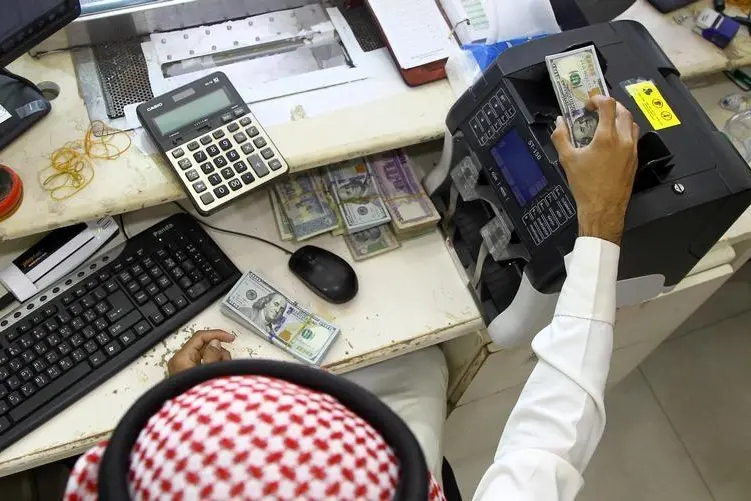PHOTO
Banks in Saudi Arabia and more than a dozen other countries are likely going to see their profits deteriorate and bad loans spike this year, as emerging market (EM) economies are heading for “the worst in decades,” S&P said.
About one-third of lenders that the ratings agency tracks in15 emerging markets, which include the Gulf state - one of the largest Arab economies - now have a negative outlook as a result of the coronavirus pandemic.
Bad loans are forecast to go up by half across the region or probably double in some economies. Lenders that have huge exposure to small businesses, as well as real estate and retail will be among those that will be heavily impacted.
“We expect asset quality to deteriorate across the board, with NPLs (non-performing loans) increasing by more than 50 percent on average and potentially doubling in some countries,” the ratings agency said on Thursday.
Saudi’s neighbour, the United Arab Emirates (UAE), where major banks like Emirates NBD and First Abu Dhabi Bank have already reported an increase in loan impairment charges, was earlier forecast to experience a similar outlook due to a “triple whammy” of low oil prices, interest rates and economic activity.
Emerging markets
Due to the disruptions and slowdown in economic activity caused by the pandemic, countries in the EM region are going to see their gross domestic product (GDP) contract in 2020.”2020 will be the worst in decades,” S&P said.
If there’s even a recovery, S&P said, it will be uneven and it will depend crucially on policy responses to help limit economic dislocation. “Risks are on the downside,” the agency said.
“[There are] three channels through which COVID-19 could affect EM banks: deteriorating asset quality heavy dependence on external funding; or, third, a lack of government capacity to extend support, weaker governance, or heightened likelihood of political or social tensions,” the ratings agency said on Thursday.
“Banks with high exposure to SMEs, real estate lending, unsecured retail, or large corporates with open FX positions would be the most affected,” the agency noted.
The decline in banks’ profitability will be due to the higher cost of risk and, for some lenders, lower interest margins.
S&P, however, pointed out that EM banks will remain profitable in 2020, except for those banks in India that are already grappling with a significant backlog of NPLs “that will be aggravated by the current shock.”
The good news for Saudi Arabia’s banks is that the government in the kingdom is “highly supportive” of the financial services sector. Government support is expected to mitigate the risks arising from the pandemic.
In March, the Saudi Arabian Monetary Authority announced a 50 billion riyal ($13.32 billion) package to provide support to small and medium-sized enterprises (SMEs).
Aside from Saudi Arabia, the emerging markets reviewed by S&P include China, India, Indonesia, Malaysia, Philippines, Brazil, Chile, Colombia, Mexico, Russia, Argentina, Poland, South Africa and Turkey.
(Writing by Cleofe Maceda; editing by Seban Scaria)
#SAUDI #FINANCIALSERVICES #CORONAVIRUS
Disclaimer: This article is provided for informational purposes only. The content does not provide tax, legal or investment advice or opinion regarding the suitability, value or profitability of any particular security, portfolio or investment strategy. Read our full disclaimer policy here.
© ZAWYA 2020




















